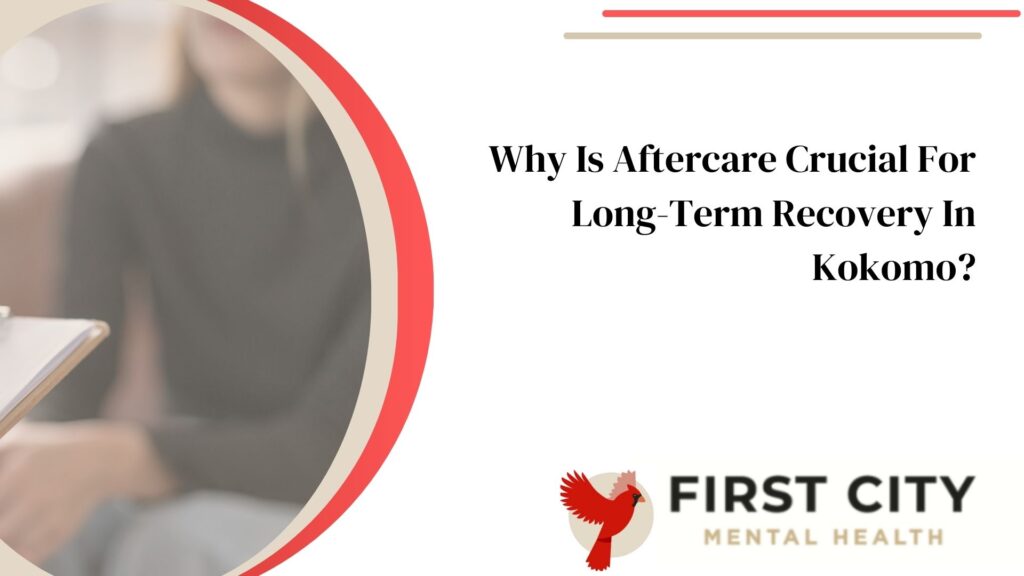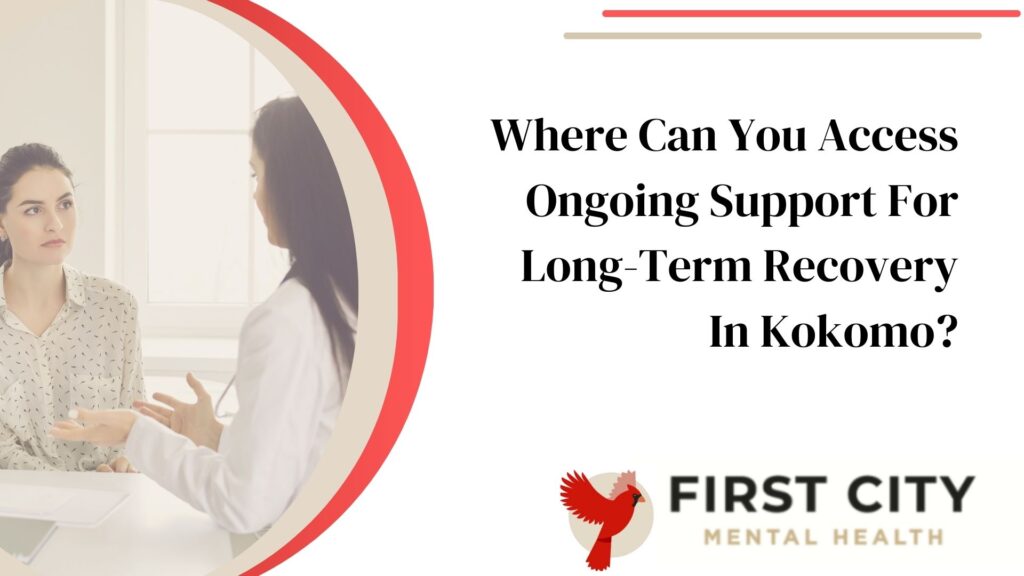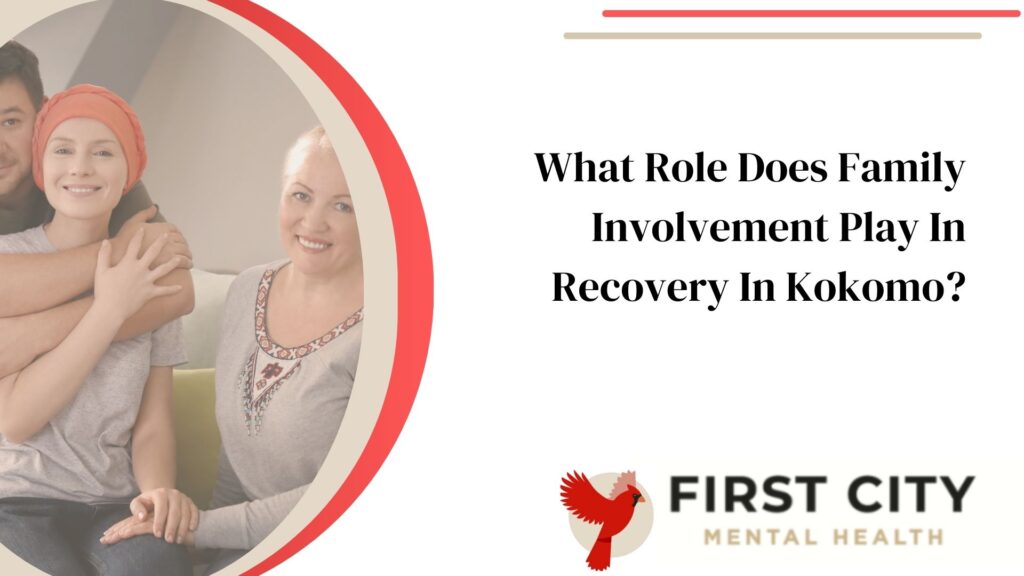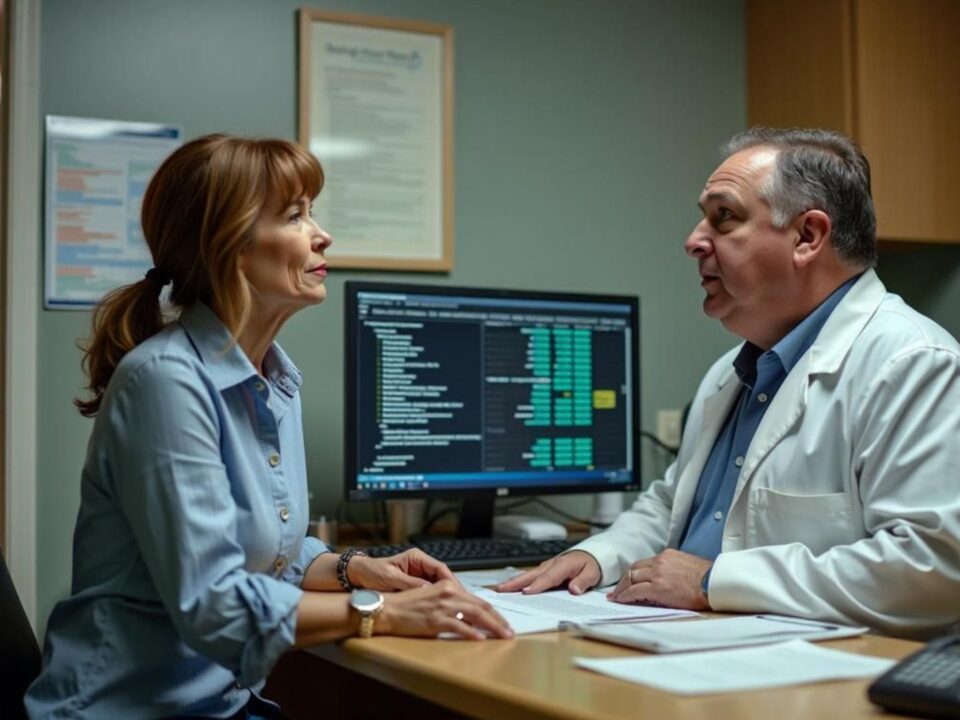
What To Expect In A Co-Occurring Disorders Treatment Program?
January 21, 2025
Why Choose A Holistic Approach In Co-Occurring Disorders Treatment?
January 21, 2025Navigating the complexities of co-occurring disorders treatment in Kokomo isn’t just about addressing two health issues simultaneously; it’s a strategic approach to fostering long-term recovery. Historically, treatments focused on one issue at a time, often overlooking the interconnected nature of mental health and substance abuse disorders.
Today, Kokomo’s integrated treatment models are designed to meet the unique needs of individuals facing these intertwined challenges of substance use disorder and mental illness. By treating both conditions together, patients receive comprehensive care that targets the root causes of their struggles, paving the way for a more sustainable path to recovery.
Key Takeaways
- Long-term recovery programs in Kokomo offer a variety of treatments, including aftercare and holistic therapies, essential for addressing co-occurring disorders effectively.
- Aftercare is crucial as it provides ongoing support and resources, helping individuals navigate the challenges of recovery and reduce the risk of relapse.
- Kokomo treatment centers focus on relapse prevention strategies tailored to individual needs, emphasizing the importance of understanding triggers and developing coping mechanisms.
- Access to ongoing support, including peer support groups and outpatient care, is readily available in Kokomo, offering a community-based approach to recovery that fosters a sense of belonging and shared experiences.
What Long-Term Recovery Programs Are Offered In Kokomo?
Addressing co-occurring disorders treatment in Kokomo, Indiana plays a pivotal role. The city offers a variety of long-term recovery programs tailored to meet the needs of individuals grappling with these complex conditions. These programs emphasize integrated treatment approaches that address both mental health and substance use disorders simultaneously.
One notable program includes residential treatment facilities. These provide a stable environment where individuals can receive constant care and support. Therapists and counselors work closely with residents, offering personalized treatment plans that include therapy sessions, group meetings, and wellness activities. This holistic approach ensures that both aspects of co-occurring disorders are treated together, rather than in isolation.
Outpatient programs also play a crucial role in Kokomo’s landscape of co-occurring disorders treatment. These allow individuals to maintain their daily routines while receiving treatment. Sessions typically focus on behavioral therapies, skill-building, and relapse prevention strategies. Outpatient programs often serve as a step-down from more intensive residential treatment, offering a balance of independence and support.
Support groups and aftercare services in Kokomo provide ongoing assistance to those in recovery. These groups offer a sense of community and understanding, which is vital for long-term success. They encourage open discussion about challenges and achievements, fostering an environment of mutual support.
Why Is Aftercare Crucial For Long-Term Recovery In Kokomo?

Aftercare plays a pivotal role in sustaining long-term recovery for individuals with co-occurring disorders. It bridges the gap between intensive treatment phases and real-world challenges. Aftercare services in Kokomo focus on relapse prevention, ongoing support, and integration into daily life. This approach ensures that the progress made during initial treatments is not only maintained but also built upon to treat co occurring disorders.
One key aspect of aftercare is continuous counseling and therapy. These sessions help individuals develop coping strategies for dealing with stressors and triggers that could potentially derail their recovery journey. They provide a safe space to discuss issues, celebrate victories, and strategize for future challenges. Aftercare often includes support groups specifically tailored for those with co-occurring disorders. These groups offer peer support, understanding, and shared experiences that are invaluable for recovery.
Medication management is another critical component of aftercare for co-occurring disorders treatment. It ensures that individuals continue to receive the correct dosages of their medications and make adjustments as needed. This oversight helps to stabilize mental health conditions, which is essential for preventing substance abuse relapses.
Finally, aftercare programs in Kokomo often incorporate vocational training and educational opportunities. These initiatives help individuals rebuild their lives, find employment, and foster a sense of purpose and achievement. By focusing on holistic recovery, aftercare services equip individuals with the tools they need to navigate life’s challenges without reverting to substance use.
How Do Kokomo Co-Occurring Disorders Treatment Centers Prevent Relapse?
Kokomo integrated treatment for co-occurring disorders centers recognize the complexity of co-occurring disorders. They adopt an integrated treatment approach to tackle both mental health issues and substance abuse simultaneously. This method is fundamental in preventing relapse among patients. It ensures that no aspect of a patient’s condition is overlooked, providing a holistic recovery journey.
These centers focus on creating a tailored plan for each individual. They understand that a one-size-fits-all approach does not work for everyone. By closely monitoring progress and adjusting treatments as necessary, they can address any emerging issues before they lead to a relapse. This dynamic strategy keeps patients engaged and committed to their recovery process.
Moreover, Kokomo centers emphasize the importance of aftercare as discussed in the previous section. Aftercare programs are designed to support patients even after they leave the treatment facility. These programs include continuous therapy sessions, support group meetings, and sometimes even vocational training. They aim to equip patients with the tools and skills needed to cope with life outside the treatment center, further reducing the risk of relapse.
Education plays a crucial role as well. Patients learn about the triggers and warning signs of relapse. They are taught coping strategies to manage stress and avoid situations that might lead them back to substance use. This knowledge empowers them to take control of their lives and make healthier choices moving forward.
Where Can You Access Ongoing Support For Long-Term Recovery In Kokomo?

Finding ongoing support for long-term recovery in Kokomo is crucial for individuals dealing with co-occurring disorders. After addressing the initial phase of treatment, maintaining recovery requires a robust support system. Kokomo offers various resources to support this journey.
Local mental health clinics often provide outpatient programs designed specifically for those with co-occurring disorders. These programs focus on both mental health and substance use, offering a comprehensive approach to recovery. They include individual counseling, group therapy, and sometimes family therapy sessions. The goal is to equip individuals with strategies to manage their conditions effectively.
Community support groups play a vital role in long-term recovery. Groups such as Dual Recovery Anonymous offer a space where individuals can share experiences and coping strategies. These meetings are peer-led and provide an additional layer of support outside clinical settings.
Telehealth services have become increasingly accessible, offering ongoing care from the comfort of one’s home. These services connect individuals with therapists and psychiatrists specializing in co-occurring disorders. They are convenient and can be particularly beneficial for those with mobility issues or living in remote areas.
For those seeking an immersive recovery experience, treatment for co-occurring disorders in the Kokomo area offer long-term programs. These centers provide a structured environment focused on healing both the mind and body. Activities include therapeutic sessions, wellness activities, and skills training workshops aimed at fostering independence and resilience.
When Should You Transition To Outpatient Care In Kokomo?
Transitioning to outpatient care in Kokomo is a critical step for individuals undergoing co-occurring disorders treatment in centers. This move often comes after significant progress has been made in a more intensive inpatient setting. It’s essential to consider several factors to ensure the timing is right.
One key indicator is stabilization of symptoms. If your mental health and substance use symptoms have become manageable and you’ve developed coping strategies, it might be time to think about outpatient care. This phase allows for a more flexible schedule, enabling you to reintegrate into daily life while still receiving support.
Another factor is the development of a strong support system outside the clinical setting. If you’ve established connections with support groups or have family and friends who understand your journey, this network can be invaluable as you transition to a less structured treatment environment.
Your healthcare provider at the co-occurring disorders treatment center will also play a crucial role in this decision. They can assess your readiness for outpatient care based on your progress, resilience, and ability to handle potential triggers without constant supervision.
Why Are Peer Support Groups Important For Long-Term Recovery In Kokomo?
Peer support groups play a critical role in the journey towards long-term recovery, especially for individuals undergoing adult co-occurring disorders treatment. These groups offer a unique platform where individuals share experiences, challenges, and successes related to their recovery process. They foster an environment of mutual understanding and empathy that is often hard to find elsewhere.
One of the main benefits of peer support groups is the sense of community they provide. For many dealing with co-occurring disorders, isolation can be a significant obstacle. Peer groups break down this isolation, showing members they are not alone in their struggles. This realization is empowering and can significantly enhance the motivation to continue with outpatient care and other treatments.
Moreover, peer support groups in Kokomo serve as a valuable source of information. Members exchange tips on managing symptoms, navigating healthcare services, and accessing community resources. They also share personal stories of what works and what doesn’t, offering practical advice that can be more relatable than theoretical knowledge.
These groups also instill hope. Hearing from others who are successfully managing their disorders can inspire members to believe in their own ability to recover. This hope is crucial for sustaining long-term recovery efforts.
The accountability aspect of peer support groups cannot be overstated. Knowing that others are counting on your participation and progress can be a powerful motivator. It encourages consistency in attending therapy sessions and adhering to treatment plans.
How Does Holistic Therapy Enhance Long-Term Recovery In Kokomo?
Holistic therapy offers a comprehensive approach to treatment for co-occurring disorders. It does not just focus on the symptoms but also addresses the root causes of addiction and mental health issues. This method integrates physical, emotional, and spiritual healing strategies that are crucial for long-term recovery.
In Kokomo, holistic therapy might include activities like yoga, meditation, and nutritional counseling. These practices help individuals develop healthier coping mechanisms. They replace harmful habits with positive ones. For someone recovering from co-occurring disorders, managing stress without resorting to substance use is vital. Holistic therapy provides the tools for this.
Moreover, holistic therapy complements peer support groups by offering individualized care plans. While peer groups provide social support and shared experiences, holistic therapy focuses on the personal growth and healing of each individual. It ensures that recovery is not just about staying sober but also about improving overall well-being.
Another key aspect is its emphasis on self-discovery and self-care. Individuals learn to listen to their bodies and minds. They recognize triggers and learn how to avoid or manage them effectively. This self-awareness is a cornerstone of preventing relapse.
What Role Does Family Involvement Play In Recovery In Kokomo?

Family involvement is crucial in the treatment of co-occurring disorders. It strengthens the support system for individuals undergoing recovery. In Kokomo, family members are encouraged to participate in therapy sessions and educational programs. This approach enhances understanding and empathy among family members.
They learn about the complexities of co-occurring disorders. This knowledge helps them provide the right support at home. It also reduces the chances of relapse. Families learn communication strategies that foster a positive environment for recovery.
In addition to attending therapy sessions, families can join support groups. These groups offer a platform to share experiences and coping strategies. They connect with other families facing similar challenges. This network provides emotional support that is vital for long-term recovery.
The holistic therapy discussed previously complements family involvement. It addresses the individual’s mental, physical, and spiritual needs. When families understand these aspects, they can better support their loved one’s journey to wellness.
In Kokomo, the co-occurring disorders treatment program emphasizes family education. It equips families with tools to handle stress and conflict without undermining the recovery process. Such programs underscore the importance of a united front in combating co-occurring disorders.
Family involvement does not just aid the individual in recovery; it heals the family unit. It bridges gaps caused by misunderstanding and stigma associated with mental health and substance abuse issues. Together, families navigate the path to recovery, armed with knowledge, understanding, and hope.
Summary
Navigating the path to long-term recovery in Kokomo involves a comprehensive approach that integrates various support systems and treatment methods. From the significance of aftercare and peer support groups to the role of holistic therapies and family involvement, each aspect plays a pivotal role in fostering a sustainable recovery journey.
Your engagement with long-term co-occurring disorders treatment program, ongoing support networks, and outpatient care options underscores the importance of a personalized and multifaceted treatment plan. Embracing these resources can significantly enhance your resilience against relapse, empowering you to maintain progress and build a fulfilling life post-recovery.
As you move forward, remember that recovery is a continuous journey that benefits from a community’s support and resources tailored to your unique needs. Kokomo’s comprehensive treatment centers and support networks are ready to assist you every step of the way. Take the first step towards a healthier future by reaching out for help today. Your journey towards long-term recovery is not just about overcoming challenges; it’s about rediscovering hope and building a life beyond addiction.
FAQS
What Long-Term Recovery Programs Are Offered In Kokomo For Co-Occurring Disorders?
Kokomo offers a range of long-term recovery programs, including outpatient therapy, support groups, and holistic care that focus on maintaining sobriety and mental health stability over time.
How Do Kokomo Treatment Centers Prevent Relapse In Co-Occurring Disorders?
Treatment centers in Kokomo emphasize relapse prevention through ongoing counseling, personalized recovery plans, and aftercare services that support patients well beyond their initial treatment phase.
What Role Does Community Support Play In Long-Term Recovery In Kokomo?
Kokomo’s close-knit community and support groups provide a strong foundation for long-term recovery by offering consistent emotional support and helping individuals stay accountable.
How Are Treatment Plans Tailored For Long-Term Recovery In Kokomo?
Treatment plans in Kokomo are tailored to each individual’s needs, focusing on integrated care that combines mental health services administration, addiction recovery, and lifestyle changes to ensure sustainable long-term recovery of mental health disorders.






